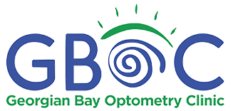Hyperopia, or farsightedness, is a vision condition that occurs when the light entering the pupil of the eye is not refracted correctly, causing the light to fall on a smaller than normal patch on the back of the eye, or retina. This results in blurred vision of objects at close range, while farther away objects appear in clearer focus. While not as common as nearsightedness, hyperopia is still one of the more common vision issues that many Canadians have to contend with.
While a common issue, hyperopia of a severity needing vision correction occurs in approximately 30% of North Americans, predominantly of Caucasian or Asian ethnic descent. As well, farsightedness does appear to be able to be passed through genetically from parent to child. If you are farsighted, having your children tested at an early age could prevent discomfort throughout their formative and teenage years, such as eye strain and headaches related to vision issues.
Symptoms of Hyperopia
Common symptoms of hyperopia include:
- Significant eye strain at close range
- Blurry vision,
- Sudden onset headaches after close focus activities such as reading or using a computer.
Less common symptoms can include:
- Difficulty in rapid focusing at different ranges, such as looking down at a smartphone after looking off in the distance, requiring effort to bring the phone into focus.
In children, symptoms can include:
- Trouble reading or having to hold a book at arms length to read, mild headaches, or constant need to be at distance to see things properly.
- Difficulty in sports such as hockey or football that require good close range hand-eye coordination is considered a possible symptom of hyperopia.
Treatment of Hyperopia
The most common treatment of hyperopia is the use of vision correction via eyewear or contact lenses. Hyperopia is very manageable with different strengths and types of lenses, and a prescription can be adjusted as the eyes develop over a lifetime. Book an eye exam to explore available treatment options.
Surgical options do exist, the most common being LASIK laser eye surgery. In more severe cases, lens replacement surgery can also be very effective at relieving the symptoms and effects of hyperopia.

